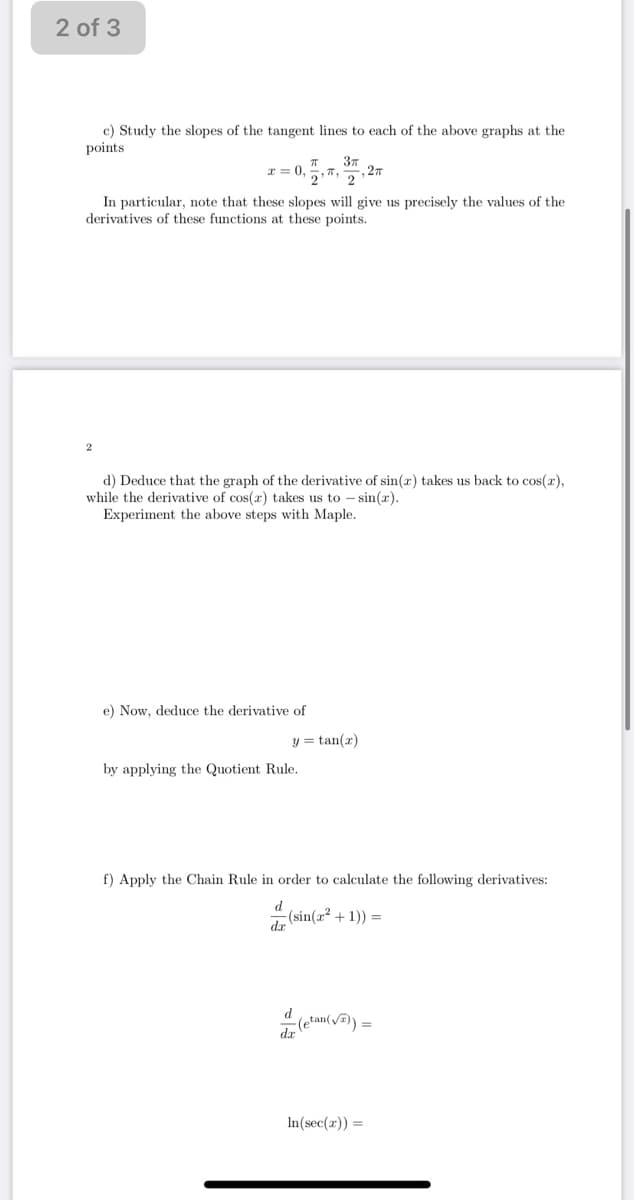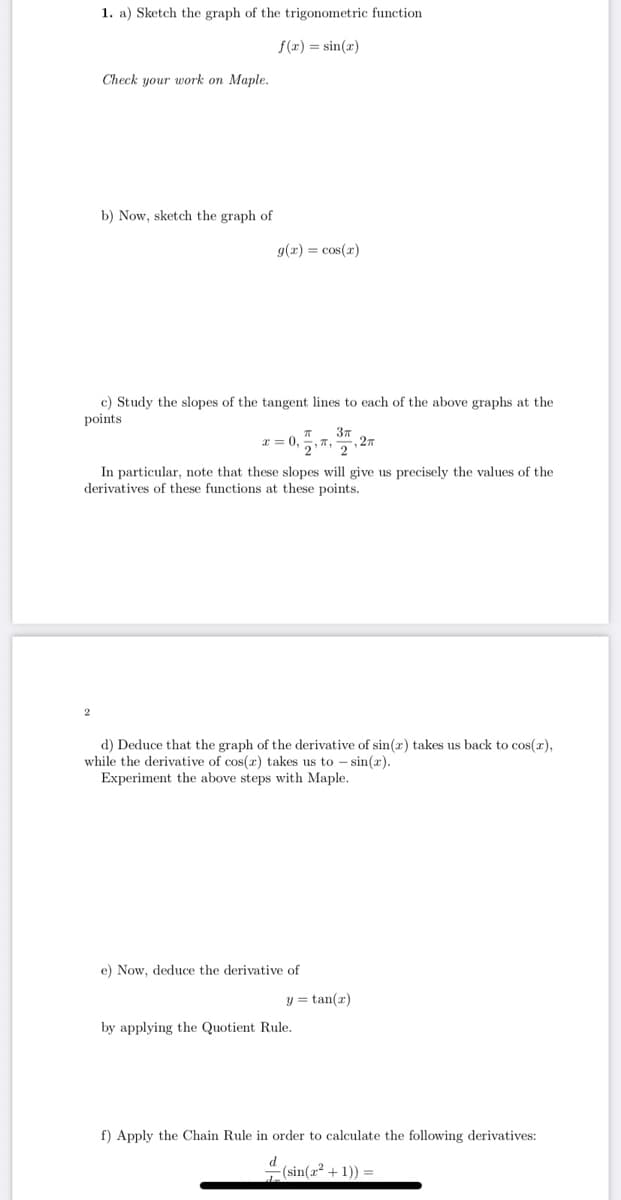Algebra & Trigonometry with Analytic Geometry
13th Edition
ISBN:9781133382119
Author:Swokowski
Publisher:Swokowski
Chapter11: Topics From Analytic Geometry
Section: Chapter Questions
Problem 10DE
Related questions
Concept explainers
Contingency Table
A contingency table can be defined as the visual representation of the relationship between two or more categorical variables that can be evaluated and registered. It is a categorical version of the scatterplot, which is used to investigate the linear relationship between two variables. A contingency table is indeed a type of frequency distribution table that displays two variables at the same time.
Binomial Distribution
Binomial is an algebraic expression of the sum or the difference of two terms. Before knowing about binomial distribution, we must know about the binomial theorem.
Topic Video
Question
Question 1F

Transcribed Image Text:2 of 3
c) Study the slopes of the tangent lines to each of the above graphs at the
points
x = 0, 5,,
37
,2T
In particular, note that these slopes will give us precisely the values of the
derivatives of these functions at these points.
d) Deduce that the graph of the derivative of sin(r) takes us back to cos(r),
while the derivative of cos(x) takes us to – sin(r).
Experiment the above steps with Maple.
e) Now, deduce the derivative of
y = tan(r)
by applying the Quotient Rule.
f) Apply the Chain Rule in order to calculate the following derivatives:
d
(sin(a? + 1)) =
da
In(sec(r)) =

Transcribed Image Text:1. a) Sketch the graph of the trigonometric function
f(r) = sin(x)
Check your work on Maple.
b) Now, sketch the graph of
g(x) = cos(r)
c) Study the slopes of the tangent lines to each of the above graphs at the
points
37
I = 0, 5,*,
,27
In particular, note that these slopes will give us precisely the values of the
derivatives of these functions at these points.
2
d) Deduce that the graph of the derivative of sin(r) takes us back to cos(r),
while the derivative of cos(æ) takes us to – sin(r).
Experiment the above steps with Maple.
e) Now, deduce the derivative of
y = tan(r)
by applying the Quotient Rule.
f) Apply the Chain Rule in order to calculate the following derivatives:
(sin(r² + 1)) =
Expert Solution
This question has been solved!
Explore an expertly crafted, step-by-step solution for a thorough understanding of key concepts.
Step by step
Solved in 2 steps with 2 images

Knowledge Booster
Learn more about
Need a deep-dive on the concept behind this application? Look no further. Learn more about this topic, calculus and related others by exploring similar questions and additional content below.Recommended textbooks for you

Algebra & Trigonometry with Analytic Geometry
Algebra
ISBN:
9781133382119
Author:
Swokowski
Publisher:
Cengage

Algebra & Trigonometry with Analytic Geometry
Algebra
ISBN:
9781133382119
Author:
Swokowski
Publisher:
Cengage